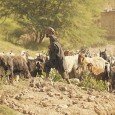By Afia Salam –
It’s Not Hunting Season Yet
There is so much wrong in so many areas. Crimes of omission and commission. Public sector manipulations, inefficiencies and downright corruption. Collusion of the high and mighty with their subordinates to cheat people out of their rights. Sometimes this seems all pervasive. But every once in a while someone breaks the pall of gloom and shows commitment and honesty to champion right over wrong, legal over illegal.
There are two recent examples that give us heart. One was the tug of war between good and evil in Khyber Pakhtunkhwa, and the other is the never-say-die attitude right down south in Karachi where a committed band of citizens are taking on the most powerful real estate company in Pakistan.
First success story first. A series of pictures burst upon the social media scene, with some person proudly posing with a large number of birds he had hunted, displayed on the bonnet of a Government vehicle.
One couldn’t figure out what was more infuriating; the killing of the birds, or the smirk on the face of the hunter posing with his ‘trophies.’ Well it didn’t too long to wipe that smirk off his face as the former Minister of State for Environment, Malik Mohammad Amin Aslam immediately complained to the concerned department, which instituted an inquiry, and fined him after his guilt was established. To name and shame, Akhundzada Hasham Hazrat, a government employee in Dir went on a killing spree, and hunted pheasants (Koklass and Monal), something that is forbidden by law.
Even though ignorance of the law is no excuse, being a government servant, he probably assumed he could indulge in this sport with impunity, and brazenly posted the pictures on Facebook. Minister Aslam did not waste any time, and immediately notified the wildlife department, which handed down a fine of Rs.50,500 on him, which in the opinion of conservators and environmentalists, was a mere slap on the wrists.

This is very true because the laws have not been updated to keep up with inflation. Gone are the days when this was considered a very heavy fine and proved to be a deterrent. Now, the illegal hunters make that amount up by selling the stunningly coloured feathers of the birds, which fetch a five-figure sum. Absence of all the tiers of governance, like up to date laws, their dissemination and enforcement, means there is no strong message to the errant that biodiversity is sanctified, and also leads to a culture of perceived impunity.
This is why despite policies and papers, we see indiscriminate cutting of our already diminished forest resources; we see overfishing and depletion of our marine resources; killing of our wildlife and general degradation of the environment through unsustainable actions. We have spoken so many times about the specifics. We fight for the letter, but not the spirit behind the letter. There are many national, international, regional and local organizations that have been working for decades to save the wildlife and the environment.
However, time has now come to broaden the spectrum, and instead of individual champions, the entire civil society must take up the cause, ensuring implementation of laws and eliminating the culture of impunity. All segments of the society have to gel together as a lobby or a pressure group because individuals who try to champion a cause run the risk of victimization.
This is exactly the case in the above instance. Malik Amin Aslam initiated the process, but it was taken forward by the officials of the Khyber Pakhtunkhwa Wildlife Department. These officials, Mubarak Shah, Mohsin and the conservator, Safdar Shah took the inadequate departmental action, despite criticism that additional fine should have been slapped due to the misuse of an official vehicle.
Because the media, as well as the civil society has the habit of dropping the ball after the nine day’s wonder is over. The punishment of the culprit resulted in punishment for the conservator, Safdar Shah, but we do not see many talking about it. This is why there is a necessity for a Citizens’ Coalition to champion such causes. Because they can make a difference. The ‘other side’ will always try to circumvent the process and try to thwart them. It is not an easy fight. It’s usually one step forward, two steps back.
Strong advocacy by citizens resulted in the reversal of a Presidential decision that was resulting in the denuding of the forests in Gilgit-Baltistan. No one can say timber mafia is non-existent now, but at least the action paid dividend.
Similarly, another recent win was the efforts of the Lahore Bachao Tehreek which was looking to preserve the trees on the canal. Activism and civil actions through courts resulted in a sort of a compromise, but now that chapter has reopened so the civil society will have to gather again to take care of their city. Then Islamabad citizenry came together to thwart the illegal plans to build a tunnel through Margalla Park, which is a declared protected area.
They are now at loggerheads over the Metro Bus scheme that is deemed as environmentally unsustainable. This is a battle waiting to happen. Then there were communities which benefitted from the remarkable trophy hunting scheme whose model was presented by Pakistan’s Naseer Tareen. It not only brought down illegal poaching, but introduced a source of revenue that benefitted the entire community.
And Karachi is seeing a gathering storm over the permission granted by Sindh Environmental Protection Agency to the contentious project that will build a flyover to enable access from the Park Towers intersection to the new high-rise being built by Bahria Town.
This project compromises heritage properties and flouts the Sindh Cultural Heritage (Preservation) Act 1994, which has notified the following structures as “Protected Heritage”:
Sri Ratneshwar Manadev Mandir (reportedly 2,500 years old)
Abdullah Shah Ghazi Mazar (reportedly 1,200 years old)
Jehangir Kothari Parade (1920)
Bandstand/Promenade Pavilion (1920)
Lady Lloyd Pavilion (1921)
Here too, a citizens’ collective is fighting these violations, but the fight is far from over. The mandatory processes like the Environmental Impact Assessment are being conducted in a manner which has been very succinctly described by an official, “EIA ka kam hai haram ko halal banana” (It is to provide legal cover to illegalities).
Let us see if the champions will overcome the chors in this instance as well.
The writer is a journalist based in Karachi































































































